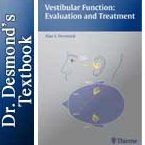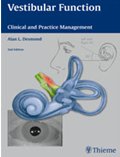Blue Ridge Hearing & Balance Clinic
A Family Guide to Hearing Loss
 Don’t you wish she could still hear you?
Don’t you wish she could still hear you?
Hearing loss is usually first noticed by others, even before the person with the hearing problems may realize it. We all turn the TV up until we can hear it clearly, and we all encounter noisy situations where we struggle to stay with the conversation. So, unless someone points out to a friend or family member that they are listening to the TV louder than normal, or that they seem to be frequently asking others to repeat or speak up, they may be unaware of the extent of their hearing loss.
Why take the step in pointing out someone’s hearing loss?
As humans age, they become less physically active, and their connection with the world is through sight and sound. Hearing loss is associated with isolation and depression, and a recent study published in the New England Journal of Medicine proves that properly fitted hearing aids improve quality of life.
How does hearing loss cause isolation and depression?
Gradual isolation typically begins at a social gathering where everyone is talking, having fun, and telling stories. The person with the hearing loss participates for awhile, then the effort to stay with the conversation just becomes too much, too tiring. They find their mind wandering, and eventually they mentally (and sometimes physically) remove themselves from the conversation. As the hearing loss progresses, friends, and family members may unwittingly contribute to this isolation. Because it takes more effort to talk to a person with hearing loss, you might find yourself censoring your conversations with them. “Is this question important enough to stop doing the dishes and walk over to where they can see my lips? Is this story important enough to turn off the TV and sit down close to them?” Sometimes the answer will be “No, it’s not important. Never mind.” Eventually, you and the hearing impaired person may unconsciously limit your interactions and communication.
“I just got a new car”
“Really, What kind is it?”
“Three O’Clock”
Misunderstandings can sometimes be funny, but hearing loss, isolation and depression are not funny. They are serious problems, and require serious solutions.
What can I do to help?
The first step is to discuss with the person that their hearing loss may be causing more problems than they realize, and help them arrange a hearing evaluation with a trained, degreed professional. You want a qualified, objective opinion, and you want all treatment options available to you. Sometimes the hearing loss can be corrected through medical treatment. Sometimes listening strategies can be learned. Sometimes hearing aids are recommended. Many retail hearing aid dispensers do not offer alternative treatments.
I know people who purchased hearing aids, but they didn’t help.
Most hearing aids now are computer controlled digital processors that have the ability to enhance speech understanding, reduce bothersome background noises, adjust volume automatically, and are free from whistling (feedback). Of course, this sophistication requires that the professional fitting the hearing aid have adequate knowledge of ear and hearing disorders, computer programming, and psycho-acoustics (the science of how the ears and brain work together to understand speech).
Blue Ridge Hearing and Balance Clinic staffs two Doctors of Audiology. Our Audiology and Hearing Aid staff are unmatched in the region when it comes to training, experience and technology. This type of expertise is crucial to the successful use of hearing aids, and is not available through many hearing aid retailers. Be sure to check the credentials of the dispenser before considering hearing aids. We can often adjust a person’s current unsatisfactory hearing aids to make them more usable by simply applying knowledge and technology that were not available through the original retail dispenser.
What’s next?
Talk to your family member about his (or her) hearing, and have him discuss it with his family doctor, who can refer him for a comprehensive hearing evaluation if indicated.



